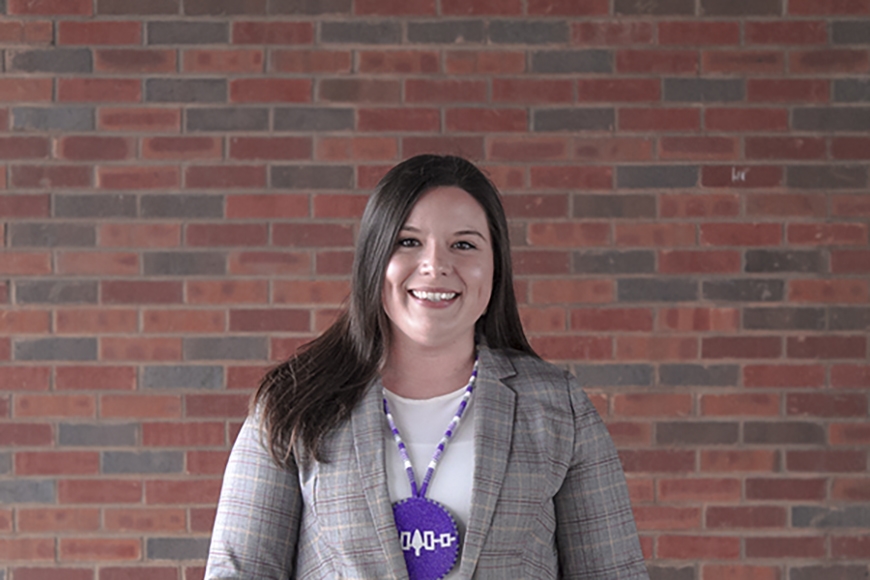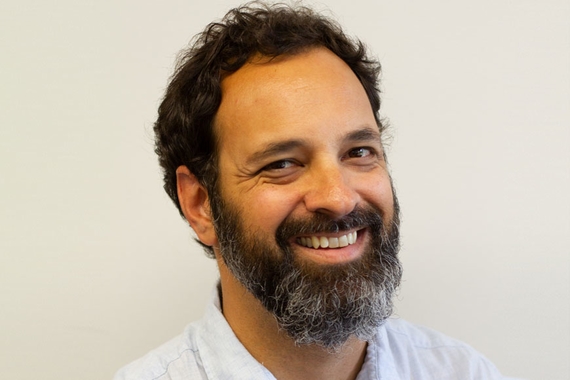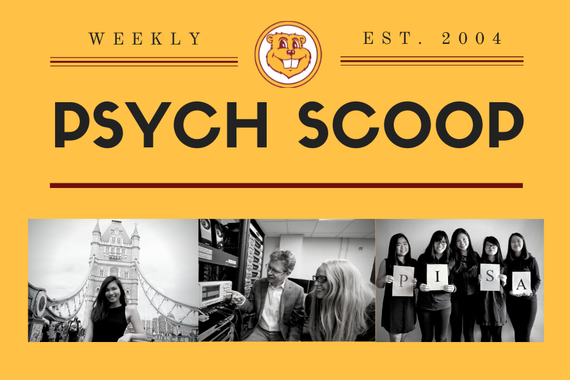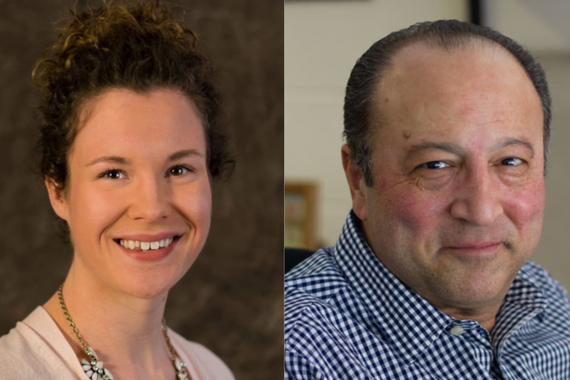New Stories for Community Transformation
There are two sides to every story. Two perspectives, two sets of ideas, two histories. But what happens when one narrative is consistently put forward? And what if that narrative oppresses the people whom it’s about? Jill Fish, a PhD student in the Department of Psychology, is working to change that single narrative and transform spaces to create more equitable places for Native people.
Personal Connections
For Fish, her focus on stories and Native people comes from an incredibly personal place. Fish is a member of the Tuscarora Nation of the Haudenosaunee Confederacy of Niagara Falls, New York, and she grew up on her tribe’s reservation. Spending these formative years in a Native-centered space gave her a deeper understanding of and investment in the cultural framework of her community. This time and involvement on the reservation also opened her eyes to the stories that are told about her people.
“What I noticed growing up was that there were kind of two sides to this story.... I was immersed in the culture and history of my tribe...and there was a lot of strength and resilience in that. At the same time, there was a lot of oppression and effects of oppression, like poverty, substance abuse, and trauma. I was curious: how do these things that seem so opposite [strength and oppression] exist in one place, and how do people navigate both these things?” Fish explains.
She felt motivated to choose a career with a focus on what she feels most connected to--Native people, and through a comprehensive study of psychology, to make social institutions for equitable and inclusive for people from underrepresented backgrounds.
Changing the Narrative
Most of Fish’s work to change these institutions and narratives happens through her dissertation project, the Native American Digital Storytelling Workshop. “I was looking at all these digital stories of immigration through Immigrant Stories [a project of the UMN Immigration History Research Center]…and I saw how empowering it was for people to have the space to tell their story, their way of life, their culture, and their history. And I immediately thought to myself, how can I use this with Native people and our communities?” Fish explains.
With the help of her team of research assistants and funds from the University of Minnesota’s Grand Challenges Initiative and the Dr. Jo-Ida C. Hansen Dissertation Research Award, Fish visits urban centers of Minnesota to host workshops where people come in and write their story. The team records each writer telling their life story, their lived experiences, or their history.
“People tell stories about us, whether it's books or movies, that are steeped in stereotypes. They paint this landscape where Native people don't exist, where we're failures...we're largely nonexistent,” Fish says. “I see [these workshops] as this intervention where people can come in and rewrite not only their own narrative, but also the broader narrative about what it means to be Native American in 2019.” She hopes to continue to collect these stories in the future and create a website so that anyone can access first-person accounts of Native experiences.
Expanding Space
In addition to creating new spaces for Native voices through the digital storytelling project, Fish also works to expand existing spaces to provide services for Native students at the U. As a Native college student working in clinical services, Fish noticed that there weren’t many counseling services for Native students.
She worked for three semesters alongside the UMN Circle of Indigenous Nations and Student Counseling Services to establish a therapy program that was first and foremost culturally congruent for undergraduate and graduate Native students.
Sessions use a talking circle structure, with a talking piece passed sequentially for students to speak. “It was an integration of these two different practices [traditional and clinical] as a way to provide Native people on campus with the space to process their feelings and emotions of being Native on a predominantly white campus,” Fish says.
New Stories to Empower
In order for images surrounding underrepresented groups to change, Fish believes that their stories—the stories that empower, not damage--must be heard. ”Stereotypes misrepresent the degree to which Native people experience substance abuse, violence, and poverty, and overlook the strength and resilience that is very much present,” Fish explains.
“Those things can exist, but we have to always attend to the other side of it too, that we're still here,” Fish explains. “People might say, we're not still here and people might tell that story, but we are very much still present and we're thriving. There's a lot of strength that people overlook.” The people who Jill meets tell the stories that change the long-held, single-sided narrative about Native populations. They honor and cherish culture, take back ownership of their own story, and empower all.
This story was written by an undergraduate student in CLA.



